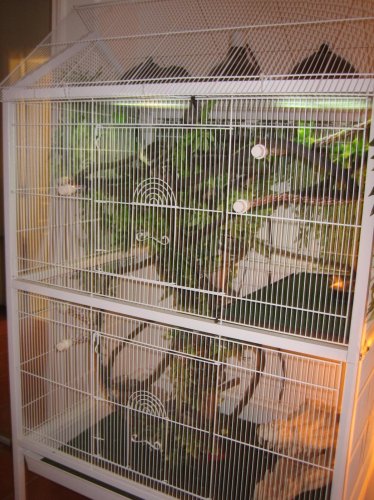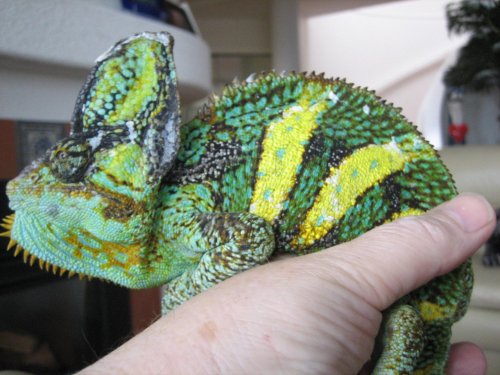Hi,
Or boy Ben ( 3 years old ) stopped eating 6 days ago. We know about the hunger periods they go through but this wasn't one. He also stopped pooping at the same time.
We took him to the vet who has limited experience and they suggested giving enemas over 3 days and bloodwork which we did. They now say that the blood work shows sign of Kidney disease and that we should have him put to sleep.
We give him some low protein food and antibiotics by syringe daily but he has got very little energy now and can't hold onto branches so we have him in a smaller tank with fuzzy blanket and heat to keep him comfortable.
His eyes as always are alert, following our every move and we take him out and hold him in his blanket most of the time.
As the vet can give no hope We wondered if anyone has any thoughts at all to help with giving him something to help poop or other.
We know that we are grasping at straws but don't want to give up on him if there is any chance.
 All and any suggestions appreciated.
All and any suggestions appreciated.
Or boy Ben ( 3 years old ) stopped eating 6 days ago. We know about the hunger periods they go through but this wasn't one. He also stopped pooping at the same time.
We took him to the vet who has limited experience and they suggested giving enemas over 3 days and bloodwork which we did. They now say that the blood work shows sign of Kidney disease and that we should have him put to sleep.
We give him some low protein food and antibiotics by syringe daily but he has got very little energy now and can't hold onto branches so we have him in a smaller tank with fuzzy blanket and heat to keep him comfortable.
His eyes as always are alert, following our every move and we take him out and hold him in his blanket most of the time.
As the vet can give no hope We wondered if anyone has any thoughts at all to help with giving him something to help poop or other.
We know that we are grasping at straws but don't want to give up on him if there is any chance.




